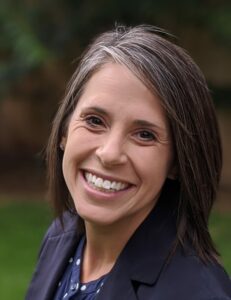
Emily Gonzales
Why Create a Development Committee?
When you empower volunteers through the focus of a development committee, they’ll drive fundraising far beyond what the development staff and your average board member can accomplish alone. These folks likely yield greater capacity than your board members. They can become champions for your fundraising goals (whether financial, educational, or social), connecting with donors and prospects to bring nuanced perspectives on your organization’s work. When these groups are engaged, they can also advise your board on the timing of campaigns and your donors’ receptiveness to particular fundraising initiatives.
By holding frequent development committee meetings with ambitious yet attainable goals, your members will invest meaningfully in your organization’s work and fundraising success. This deeper level of engagement yields a robust group that can authentically speak to the “why” behind your mission.
Roles & Responsibilities
While development committees may not vote or have fiduciary, legal, and other responsibilities, they can be significant in an organization’s fundraising success.
The influential roles and responsibilities of these members may include the following:
- Donor relations: Engagement with individuals and business leaders, possibly focusing on mid-range donors (while board members work with higher-capacity donors and prospects). Development committee members can play a significant role in donor appreciation, supporting the organization’s stewardship efforts in numerous ways, such as making thank-you calls, joining meetings to show gratitude, and hosting donors at events. Development committee members can also represent the committee in major gift-ask meetings when appropriate.
- Events management: These time-intensive activities are great for community engagement, though they present a significant challenge for the schedule of development staff. Development committee members can make or break a successful event for your organization.
- Provide community insight: Connections with the wider community, such as economic development and professional membership groups, can offer various perspectives on how your organization serves particular populations or fulfills its mission.
- Manage campaigns and specific projects: Development committee members can play an integral role in keeping campaigns and specific projects on track for success, either directly or through overseeing the work of a separate campaign committee or subcommittee.
- Provide messaging feedback: Your communication on particular fundraising initiatives or campaigns—whether geared toward a particular donor, a segmented demographic, or your entire community—will need refinement to be effective. Committee members can provide valuable insight as to how your messaging reads!
- Give to the cause: Committee members should make personal gifts to your organization’s campaigns and annual giving needs. This means that when committee members ask for gifts, they ask others to join them in investing.
- Champion development: Speak positively about your organization’s fundraising efforts and team. Development committee members can represent your organization’s development work at events, public speaking opportunities, internally at staff meetings, and in the broader community.
Recruiting & Forming a Development Committee
Finding the ideal development committee members is an exciting opportunity to consider your organization’s fundraising needs. Let your organization’s needs drive your recruitment, as development committee members can bring various skills and talents. The following steps will get your development committee off the ground:
- Identify a staff liaison to the committee. Describe the responsibilities of the development committee with a charter that clearly defines the group’s scope and purpose, general guidelines, and expectations for members, including monthly time commitments.
- Create a set of responsibilities for the committee, including duties, limited authority, and any applicable requirements, such as term limits or periodic mandatory meetings. Include a general description of the committee duties in your organization’s bylaws.
- Identify donors, volunteers, and others to invite to serve on the committee. Select potential members based on fundraising goals and their talents or influence. This can be an opportunity to improve partnerships with stakeholders. For example, an alumni office for a university initiative, another non-profit with mission alignment, or the movers and shakers in your local community could be connected to your organization through your development committee. Staff should personally invite each potential committee member.
- Host a kickoff development committee meeting. Introduce members to the key staff, leaders, and board members (if applicable) and lead a discussion about the organization’s vision and the committee’s goals for the coming year.
- Appoint a chair who can lead the committee, oversee meetings, and serve as the liaison between the board and committee. The chair can schedule meetings and set agendas.
Development Committees Beyond Fundraising
Development committees are an opportunity to find and cultivate additional leadership talent for your organization. For example, consider having your development committee members serve on this group for one year before advancing to board candidacy. This will allow ample time for new volunteers to get into the rhythm of your organization’s work and to decide for themselves if they desire greater responsibility.
It is also important to remember that the development committee is a volunteer engagement opportunity. It is an honor to be asked to serve in this group and represent your organization and its fundraising initiatives. So consider this “ask” a cultivation move in and of itself!
This committee can play an essential role in your organization’s culture in both collaboration and philanthropy. When your development committee can collaborate, allow shared perspectives, and positively support your development initiatives, they can make great strides in fundraising growth for your organization.



